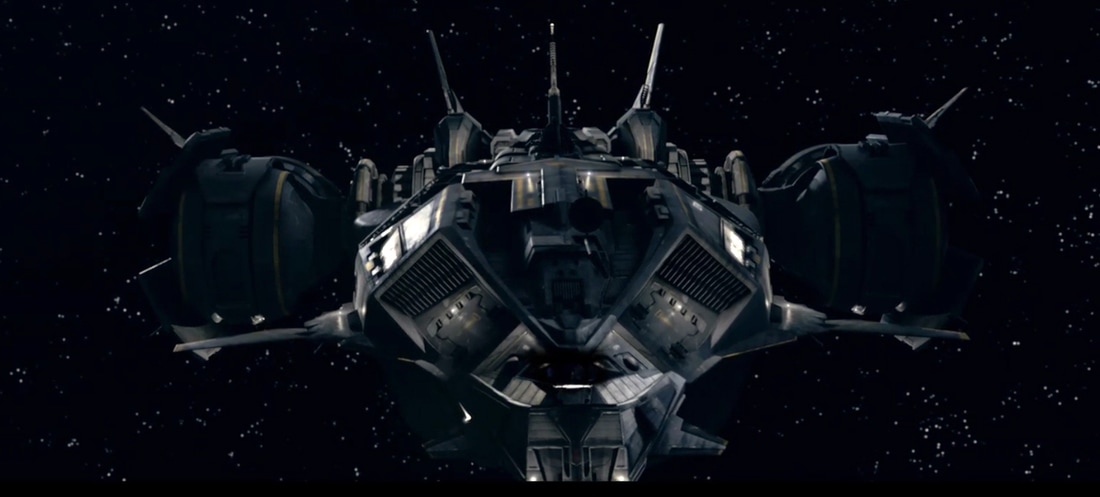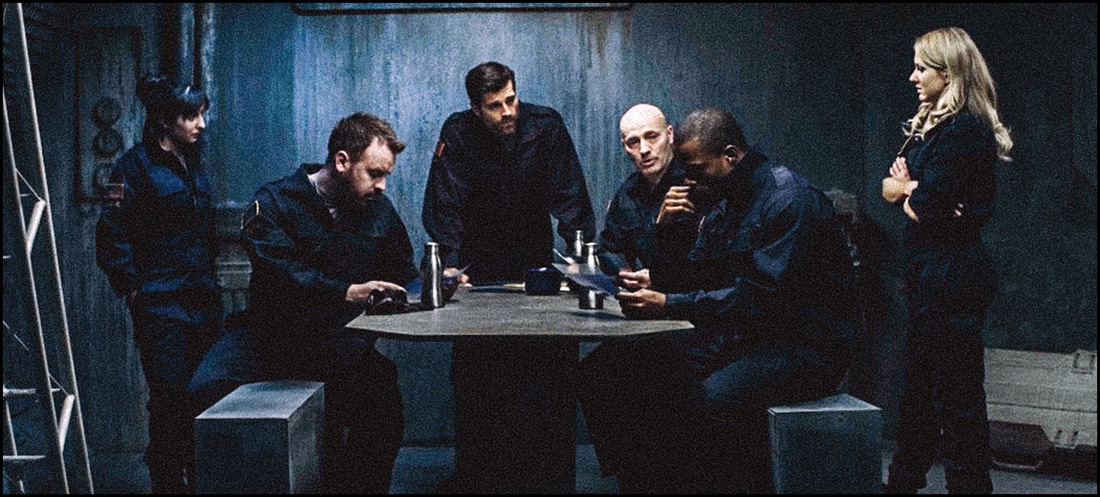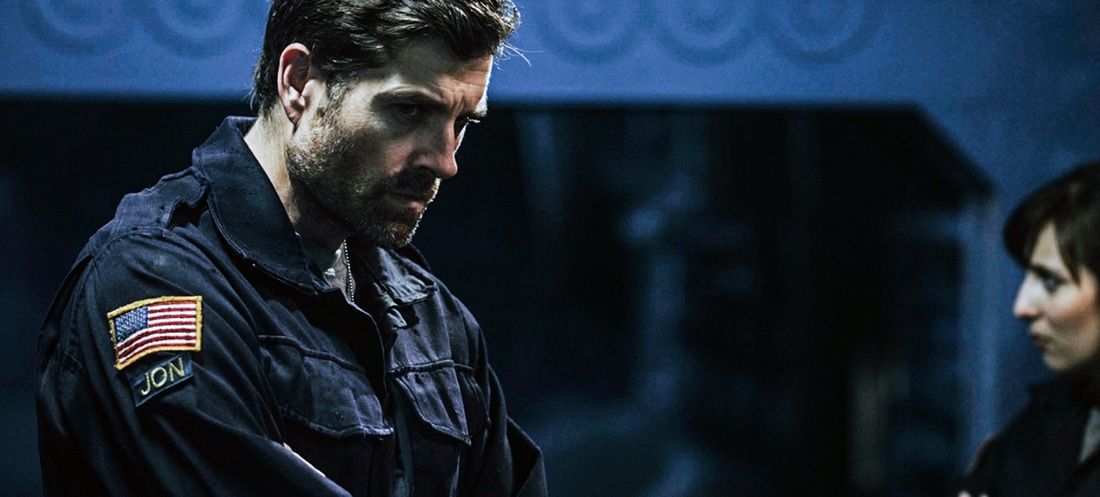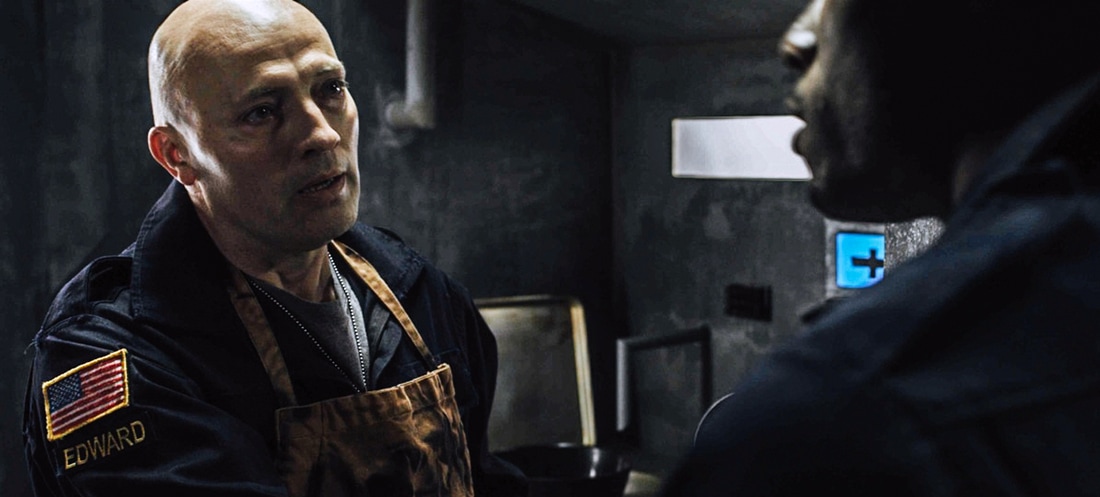To a certain degree, one could argue that it’s the economics of crafting big budget films which force storytellers to go ‘dark’ and ‘darker.’ Moviegoers crave action. They long for escape from their everyday lives. For example, both Ridley Scott’s ALIEN and Steven Spielberg’s E.T. – THE EXTRATERRESTRIAL explore mankind’s contact with an EBE (Extraterrestrial Biological Entity), but only one of those two properties enjoys a lucrative box office franchise with multiple entries. And why is that, you ask? Well, goodness, grace and friendship work for only so long in spinning yarns of fancy, but any good writer will tell you what’s needed to captivate an audience is ‘conflict.’ Now, if E.T. returns with a plan to eat Elliot, his family, and the rest of the subdivision, maybe a sequel is warranted (and bring in Quentin Tarantino to direct); otherwise, it might be a hard sell to both studio suits and the audience they seek.
Even Science Fiction’s revered classics drift toward themes and messages decidedly bleak. THE DAY THE EARTH STOOD STILL (1951) ends as an object lesson warning mankind that it had better clean up its act or else the alien overlords might have to intervene. PLANET OF THE APES (1968) climaxes with our hero – astronaut George Taylor – brought to his knees over the realization that Earth’s warring factions finally pushed the button and blew civilization back to the Stone Age. Even Stanley Kubrick’s 2001: A SPACE ODYSSEY can’t quite escape the underlying pessimism inherent in SciFi: ‘go out into space where you will, Earthmen, but don’t come here.’
Into this merry realm (/sarc) now comes Simon Phillips’ THE LAST SCOUT (2017).
From the publicity materials:
“2065...With Earth rendered uninhabitable by war, humanity's remaining survivors send a fleet of ships to different points in the galaxy in the hope of finding a new world. After seven years of travel and long since out of communication range, the crew of The Pegasus are nearing their destination when they encounter a derelict ship. As tensions on board rise and they struggle to complete their mission they soon realize that they are not alone and must fight for their survival - and the survival of the human race.”
When SCOUT begins, the crew of the Pegasus are seven years into their journey to find a new home for the human race. Have you ever spent seven years confined with the same souls? Now, I spent four years in a fraternity house during my years in college, and I can tell you without hesitation that I learned quite a bit about those men and the women who hung out there. Granted, I didn’t know everything, but circumstances of close quarters do make for very effective conversation starters. Still, the members of Pegasus appear all too often in the film as if they’re just ‘getting to know’ one another, a big misstep in a script by Paul Tanter. There are moments of camaraderie: in fact, the feature has a great exchange (over space radio) between two of central players (after an entirely unnecessary, five-minute voiceover set-up). The problem is that I found these moments too few and too far between to be entirely believable for their claustrophobic circumstances.
That narrative shortcoming aside, SCOUT is captured the way features like this always are: there’s a pervasive sense of dread and desolation about these people, their ship, and an empty, unforgiving frontier around them. Mankind couldn’t even learn to live with itself back on Earth, resulting in the planet’s destruction, and now it’s having an even harder time getting along in the void. All the baggage that made our species in need of a collective time-out is stowed away on this ship, and audiences can be certain it’s only a matter of time before those vices and prejudices rear their ugly heads where no one can hear you scream.
On that note, Blaine Gray stars as the ship’s captain, and he delivers a believable central character worn down by the rigors of command and protracted isolation. Director Phillips does double duty here, assuming the role of ship’s engineer, Pete, the Pegasus’s most likeable soul. Deji LaRay, Paul Thomas Arnold, and the familiar Peter Woodward (of BABYLON 5 and CRUSADE fame) all turn in good work, though their respective crewmen aren’t deep enough consistently to be more than cinema creations. Rita Ramnani plays the good-natured and occasionally plucky ship’s helmsman with great conviction, and the fetching Rebecca Ferdinando gives heart to the ship’s physician and resident ‘mother hen.’ The young Mercedes Synodis rounds out the Pegasus crew as the child preserving hope for that oft-promised ‘better tomorrow.’
For what it’s worth, SCOUT reminded me quite a bit of one of the very first SciFi books I read as a young man: Frederik Pohl’s “Gateway.” In that version of the future, space explorers have discovered what remains of the Heechee, a long since vanished race who’ve left behind a vast fleet of deep space craft. The problem is that Earthmen aren’t talented enough to figure out what destinations these pre-programmed ships have been configured to stop and then return home, so every trip is a gamble: one might seal your Fate while another might deliver you untold riches. SCOUT’s Pegasus is on a similar journey: wherever this crew arrives, they won’t know if they’re doomed or deliverers until they get there. That alone kept my interest, despite some awkward and at times lethargic pacing.
HIGHLY RECOMMENDED. While most of the ideas and themes explored in THE LAST SCOUT aren’t new (certainly, they’re practically staples in Science Fiction these days), Simon Phillips’ feature still worked quite well for me despite some only serviceable characterizations. In the end, it’s the kind of flick that – so long as you don’t think too long and too hard about it – that SciFi geeks (of which I proudly consider myself) are inclined to like, though it could’ve used some edits here and there to get it down to ninety minutes (at best). Performances are solid, and – all in all – I give it a thumbs up.
In the interests of fairness, I’m pleased to disclose that the fine folks at Epic Pictures provided me with a means to view the release digitally for the sole purpose of completing this review; and their contribution to me in no way, shape, or form influenced my opinion of it.





 RSS Feed
RSS Feed